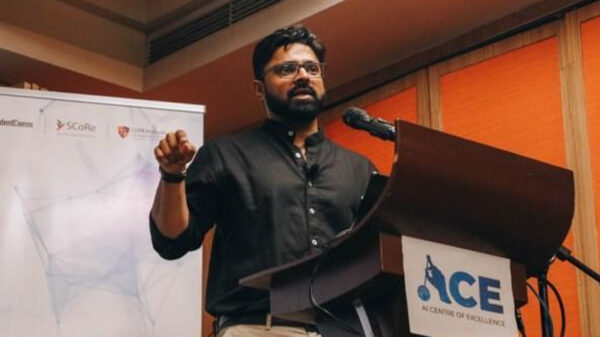“In today’s digital shift, decision-makers are now taking on steps to embark on a cloud adoption journey,” said Mauch Franco, group head for cloud, online and data center services at MIS & IT Group. “Organizations believe cloud can help them thrive in the ever-changing digital environment as they seek new revenue streams and business models. With cloud, businesses can deliver their products and services faster, optimize their performance, and improve the reliability of their services.”
However, and unfortunately, “many organizations are hesitant due to the uncertainty of how to start with their cloud journey as well as the uncertainty of what benefits cloud will actually deliver to the business.”
And this uncertainty is one of the key issues about cloud adoption that MIS & IT Group has encountered in offering services with clients in the Philippines.
Another issue is data sovereignty.
“Free flow of data across the globe has been a remarkable feature of the Internet that has resulted in technical efficiencies and reduced costs. Cross-border data flows are estimated to have raised the world GDP by 10.1%,” Franco said. “However, this lack of borders in the digital world has tested traditional notions of territoriality and sovereignty. Due to this, the requirements for data localization or data residency has been rapidly evolving.”
Franco noted that a growing number of countries have been placing restrictions on transfers and exchanges beyond territorial boundaries. “Typically, data localization laws either require that data be hosted on local servers or restrict transfer of data outside national borders.”
Already, Data Localization Laws have been recently enforced in many countries including the following: Australia (for health records); Canada in Nova Scotia and British Columbia (public service providers and all personal data); China (personal, business and financial data); Germany (telecommunications metadata); India (Payment System Data); Indonesia (public services companies must maintain data centers in country); Kazakhstan (servers running on the country domain, .kz); Nigeria (all government data); Russia (all personal data); South Korea (geospatial and map data); and Vietnam (service providers usage data).
“For some countries, including Malaysia and the Philippines, though there are no data sovereignty laws, strict consent requirements and regulatory approvals for overseas data transfer exist,” said Franco.
Also still an issue that affects cloud adoption in the Philippines is cloud security.
“One major hindrance to widespread cloud adoption is cybersecurity. Many have the perception that moving to the cloud makes them prone to security threats and attacks.
o In the Philippines, it is unfortunate that our country is yet to mature in infrastructure as well as skills to address cybersecurity risks,” Franco said.
Perhaps not surprisingly, In the Cloud Readiness Index 2018 presented by the Asia Cloud Computing Association, the Philippines remains to be one of the countries in the Asia Pacific that have yet to mature in terms of cloud adoption. Out of 14 economies across APAC, the Philippines landed on the 9th spot, falling behind South Korea and Malaysia, and ahead of Thailand, Indonesia, India, China and Vietnam. The top three spots were occupied by Singapore, Hong Kong and New Zealand respectively.
For Franco, to make the journey to the cloud as smooth as possible, a hybrid cloud approach will be a good strategy. “Hybrid cloud is a cloud computing environment that uses a mix of on-premises, private cloud and third-party, public cloud services with orchestration between the two platforms,” he said. “Unfortunately, there are only a few local cloud providers that may have the necessary experience, expertise and appropriate cloud infrastructure to effectively assist companies in their cloud journey.”
Franco recognizes that “in today’s corporate environment in the Philippines, it is highly likely that though decision-makers are exploring the use of cloud, they may not yet be comfortable with having corporate or company data outside the Philippines. Hence, they explore engaging local cloud providers,” he said. “Once more, it is unfortunate that there are only a few local cloud providers that may have the necessary experience, expertise and appropriate cloud infrastructure to effectively provide a reliable local cloud for data localization.”
Globally – to address cybersecurity – reputable public cloud providers such as Microsoft Azure or AWS have adopted security standards such as ISO 27001 which are trusted global security standards. ISO 27001 (formally known as ISO/IEC 27001:2005) is a specification for an information security management system (ISMS) which is a framework of policies and procedures that includes all legal, physical and technical controls involved in an organization’s information risk management processes.
“Unfortunately, local cloud providers may not be as secure, robust, and reliable compared to Azure and AWS,” Franco said.
To respond to these challenges, VST ECS Philippines, Inc is launching the first and only Azure Stack in the Philippines, offered on a subscription basis.
This solution, said Franco, can provide the following benefits: Azure Stack is a local cloud that is physically located in the Philippines, initially in Metro Manila that can comply with data localization requirements; Azure Stack is a hybrid cloud solution which enables the journey of companies to the cloud as smooth as possible; and Azure Stack is the only local cloud solution that carries the trusted global standards of reputable public cloud providers such as Microsoft Azure.
“As VST ECS Philippines, Inc is launching the first and only Azure Stack in the Philippines, we are the only company that has the experience in deploying and maintaining an Azure Stack infrastructure in the Philippines,” Franco said. “The VST ECS Philippines, Inc Azure Stack IaaS and SaaS services are the only services offered for subscription in the Philippines. This will allow for companies to manage IT investment costs as their businesses grow.”
In the end, Franco said that with VST ECS Philippines “probably the largest IT distributor, it is in a unique position to provide a complete solution due to its long-standing relationship with its wide range of business and technology partners.”











































































































